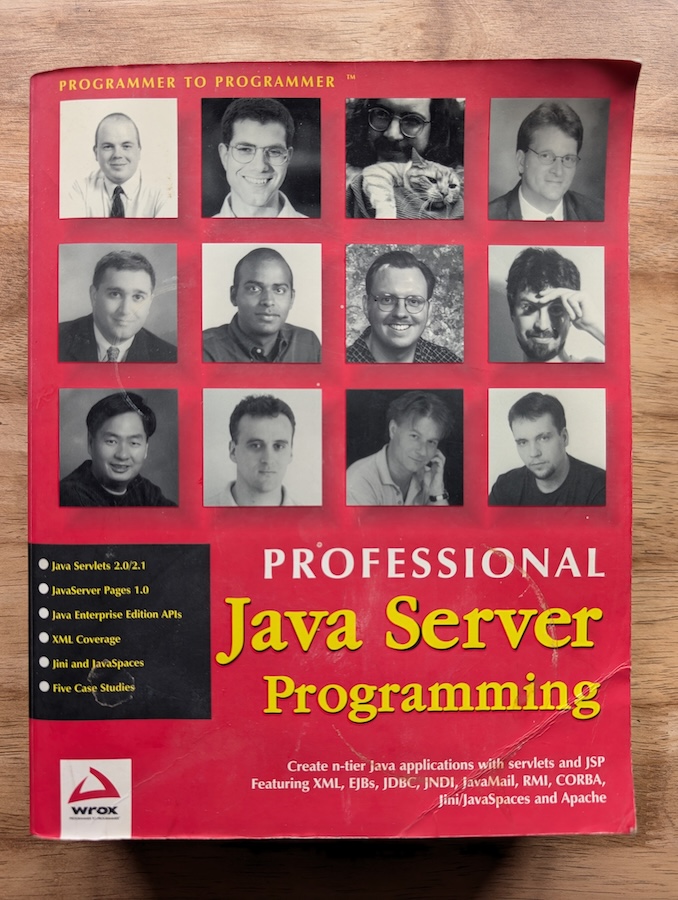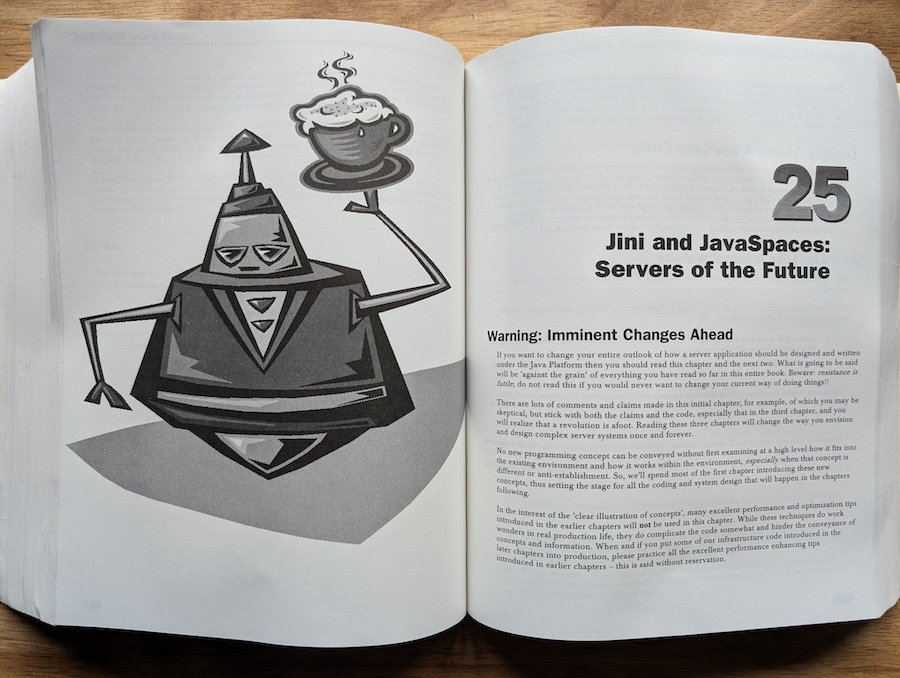I spent the last week at a rural retreat, having some much needed downtime. There’s a library here, which is mostly horror novels, along with some technical books, including Wrox’s 1999 book, Java Server Programming.

At over 1100 pages it’s a huge tome, and I miss being able to learn programming from these sorts of texts. This was the second book I read on Java after Laura Lemays Learn Java in 21 Days and it contained everything you needed to know in 1999 to become a Java backend developer – along with a lot of other arcana such as Jini and Javaspaces.

I learned enough from this book to pass an interview for a London web agency. I remember being asked what happened when a browser makes an HTTP call to a server. That’s a brilliant question, which allows a candidate to go into detail about the bits they know, although the answers will be much more complicated nowadays. I started working at the agency in 2000 just as the Internet was getting going. It was a very exciting time.
My own copy of Professional Java Server Programming was abandoned long ago – living in shared houses over the years meant limited space to keep books. But finding it here was like encountering an old friend.